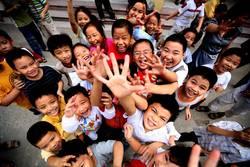
In today’s rapidly-changing, knowledge based societies where social and political participation takes place both physically and virtually, acquisition of basic literacy skills and the advancement and application of such skills throughout life is crucial.
UNESCO has been at the forefront of global literacy efforts since its foundation in 1946.
UNESCO’s policy today is to support the promotion of literacy and literate environments as an integral part of lifelong learning and to keep literacy high on national and international agenda. Through its worldwide literacy programmes, advocacy work and knowledge base, the Organisation works with countries and partners to realize the vision of a literate world for all.
UNESCO’s overall approach to literacy for all encompasses the following: building strong foundations through early childhood care and education; providing quality basic education for all children; scaling-up literacy programmes for youth and adults who lack basic literacy skills; and developing literate environments.
As the majority of the world’s illiterate are women, UNESCO favors targeted initiatives such as the Global Partnership for girls’ and women education.
UNESCO monitors global literacy levels through the UNESCO Institute of Statistics (UIS), the EFA Global Monitoring Report and regional assessment programmes (RAMAA, SACMEC and LLECE).
With the help of two US-supported projects, UNESCO is creating a repository of literacy open education resources and encouraging countries to build on effective practices to accelerate literacy programmes.

Add new comment